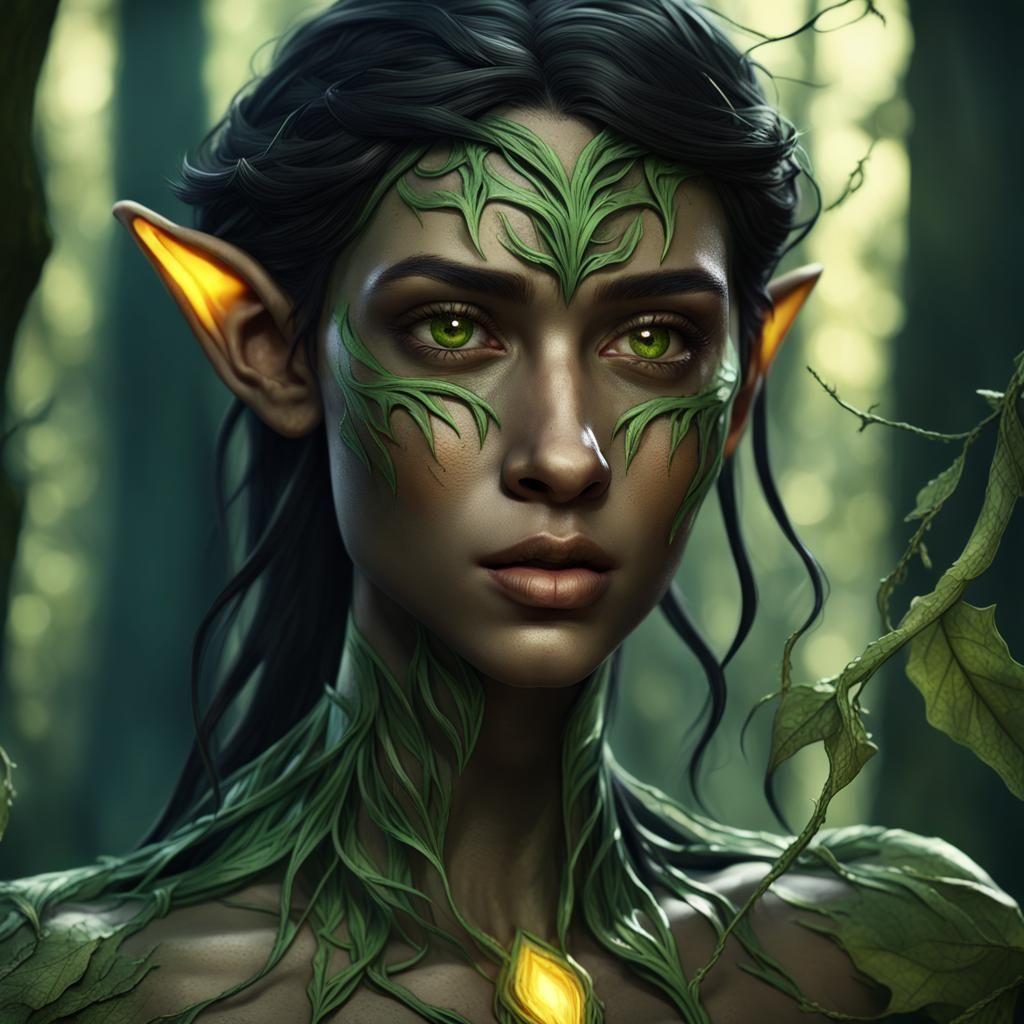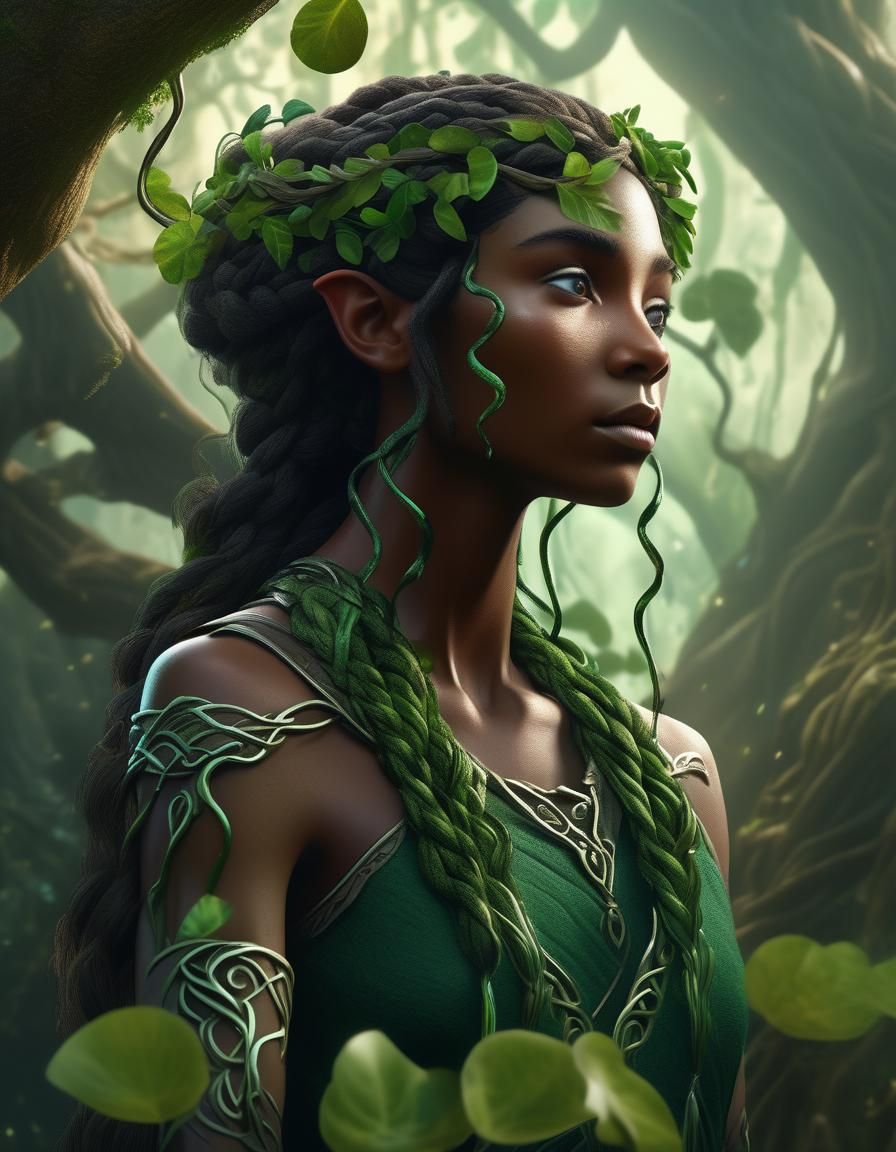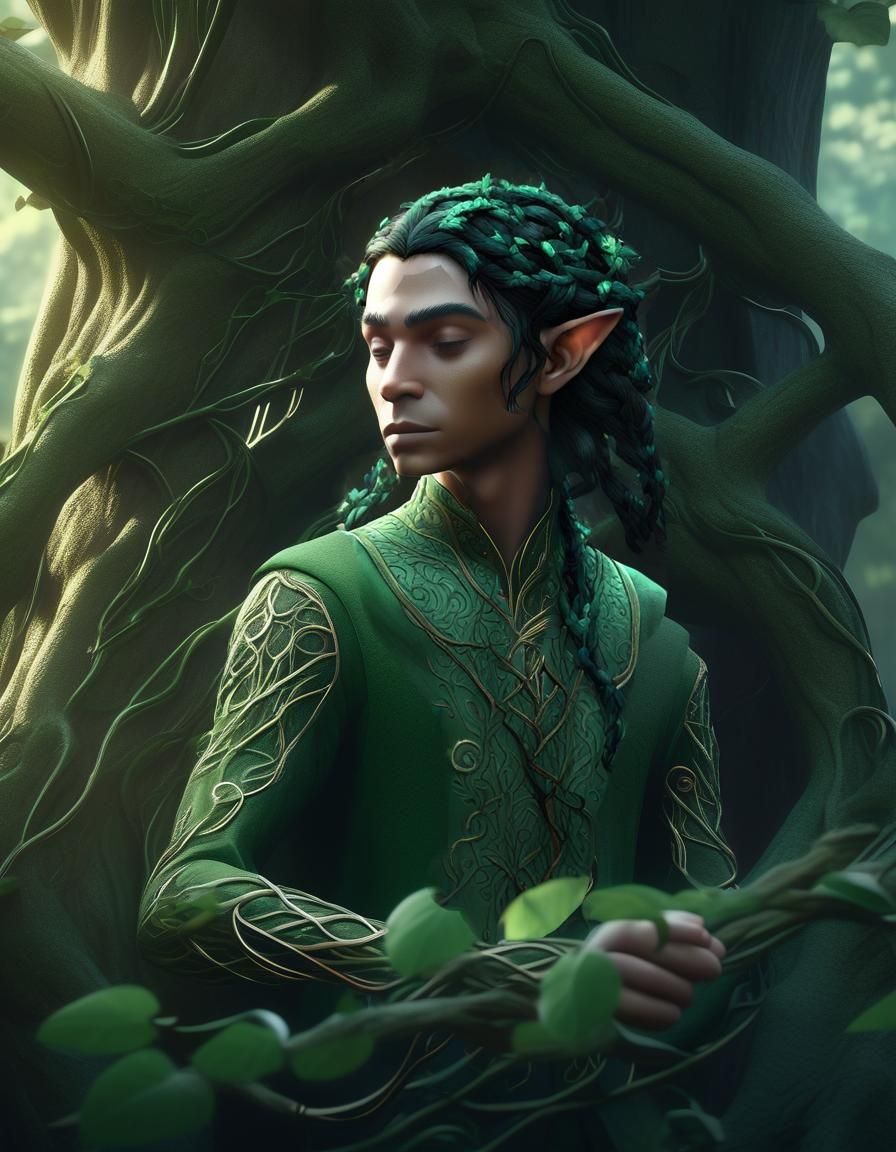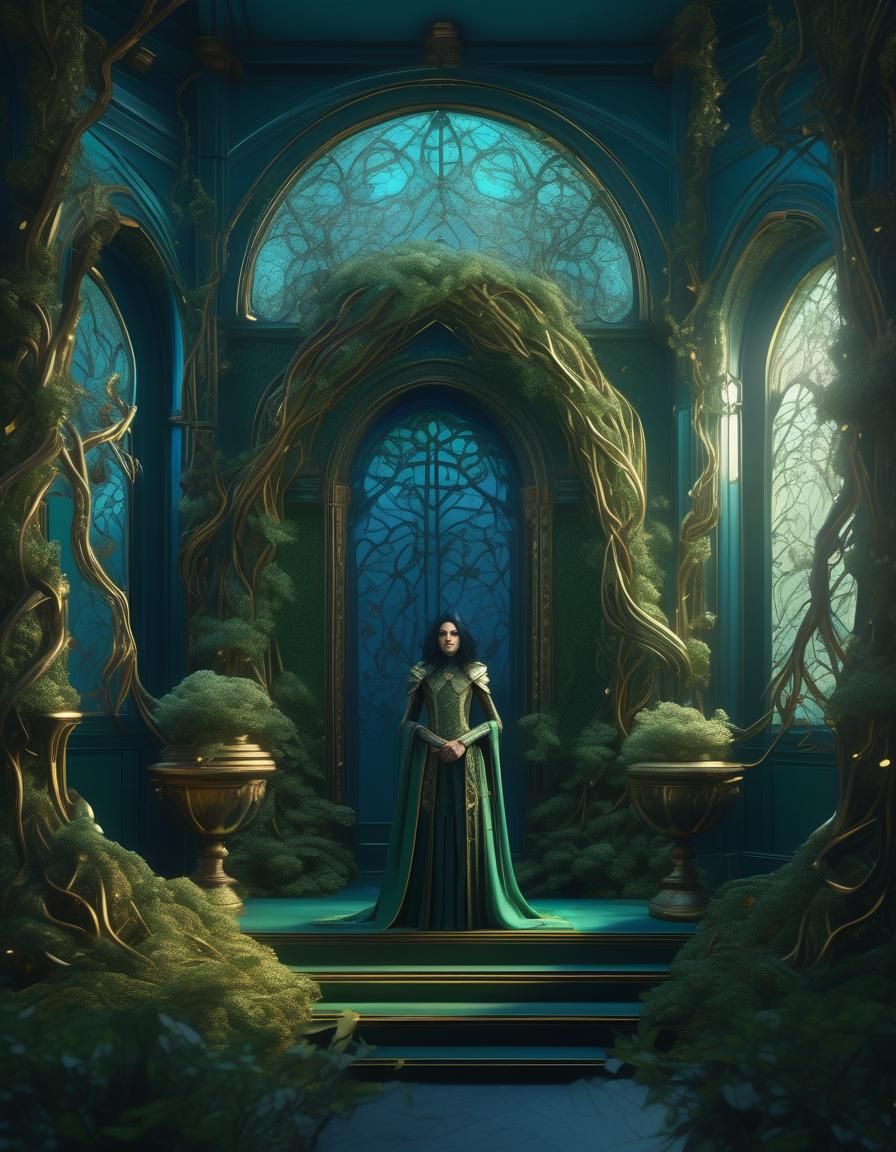Sonri (s-AA-n-r-ee)

The Sonri are a race of sentient creatures who live in the Koyari Forest. They are known by humans as Elves, but feel no attatchment to the term, beliveing it to be a human term, and thus ignorant of their culture and its heritage.

Nature's Children

Living Conditions
The Sonri live in the Koyari Forest, south of the Saldak Lake. They protect it from all creatures who might wish to harm it, including humans. They live in structures called tomariin (t-oe-m-aa-r-EE-ih-n), which are blue and yellow huts built off of the ground, around the trunk of a tree. The tomariin are built off the ground because of the Sonri's desire not to hurt the grass. The Sonri eat from the fruit and vegetables that grow in their forest, and drink from the Dalkug River, which runs through the northeastern part of the forest.Culture

Basic Information
Anatomy
The Sonri are humanoids.
Dietary Needs and Habits
The Sonri eat only plants and drink only water.
Additional Information
Geographic Origin and Distribution
Most found in Koyari Forest, others occasionally found elsewhere.
Average Intelligence
100
Perception and Sensory Capabilities
The Sonri can communicate with each other via plants, using a language called Kayotoki.
Civilization and Culture
Naming Traditions
Ko' (k-OE) comes before male names, and Ro' (r-OE) before female.
Once married, the prefex La is added on, so that Ko' becomes Lako' (l-a-k-OE), and Ro' becomes Laro' (l-a-r-OE).
Children are suffixed as follows, going from oldest to youngest: 'Oyi (OE-y-ee), 'Kochay (k-OE-ch-aa-y), 'Manoras (m-aa-n-OE-r-aa-s), 'Sok (s-OE-k), 'Sanot (s-aa-n-OE-t), 'Kira (k-ee-r-AA), 'Yant (y-AA-n-t), 'Rinam (r-ee-n-AA-m), and 'Rik (r-EE-k).
Beauty Ideals
Longer hair is considered to be more ideal. Females can make themselves appears more beautiful by braiding flowers in their hair, and males by twining in short branches.
Courtship Ideals
Once a Sonri decides to marry another, they take a twig from their tomarii-chiyak and braid it horizontally at their fiance's hairline. At their wedding, they braid two more twigs vertically on either side.
Major Language Groups and Dialects
The common language of Salkur and Kayotoki.
Common Dress Code
Tunics and loose pants woven from thin vines.
Interspecies Relations and Assumptions
They interact rarely with humans, and consider them to be unintelligent in the ways of nature. They are not outright hostile, but do not need a lot of provoking to attack.
Scientific Name
Sonriin Kayo (s-AA-n-r-ee-IH-n | k-AA-y-oe)
Lifespan
180 years
Average Height
6"3 in.
Average Weight
110 lb.
Average Physique
Well-muscled and lithe
Body Tint, Colouring and Marking
Skin ranges from a pale whitish-green (#e4f2e1), to a bright green (#0cf246), to a dark green (#135e1e).
Blood is dark green.
Eyes can be green, brown, or yellow.
The hair of the Sonri are dark black, and after about 1.5 feet, grow into green vines. It is customary to never cut one's hair, and those who do so are considered dangerous and outcast.
Blood is dark green.
Eyes can be green, brown, or yellow.
The hair of the Sonri are dark black, and after about 1.5 feet, grow into green vines. It is customary to never cut one's hair, and those who do so are considered dangerous and outcast.
Geographic Distribution
Remove these ads. Join the Worldbuilders Guild









Comments